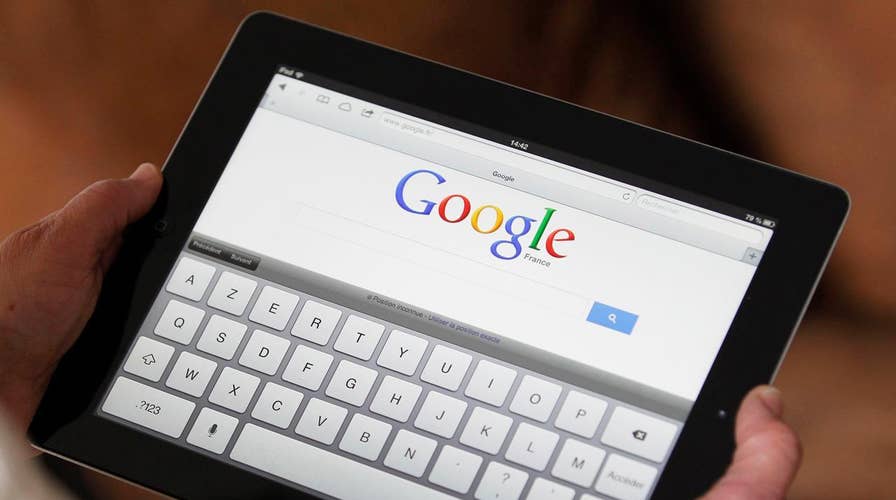Google could be a tool in fight against heart disease
Fox News medical correspondent Dr. Marc Siegel on Google developing software that could predict a person's risk of heart disease.
The retina is a thin layer of nerves lining the back of your eyes that sends signals to your brain, enabling you to see. We doctors have always referred to it as the window to the brain. Now, thanks to a remarkable new advance, there is reason to consider the retina as a window to the heart as well – and someday it might give your doctor information that could save your life.
Google Artificial Intelligence and its subsidiary, Verily Life Sciences, have assembled a database of retinal scans from nearly 300,000 patients and used it to develop an algorithm to predict the risk of developing heart disease over five years. These results are dramatically positive and the beginning of a new and effective approach to prevention.
The scan analyzes telltale signs of aging, smoking and high blood pressure found in the tiny vessels and structures of the retina. In a study just published in “Nature Biomedical Engineering,” the algorithm was applied to almost 12,000 scans (with over 100 patients with known heart disease used as a baseline). It proved to be 70 percent accurate at predicting an acute heart problem, including heart attack and stroke.
Seventy percent is the magic number, because the European Society of Cardiology recently developed a Systemic Coronary Risk Evaluation Scale (SCORE) that has been shown to be about 70 percent accurate at predicting heart attack, stroke and related death in over 250,000 patients. The retina scan is just as accurate as SCORE, and will only get better with fine tuning. After a few years it will likely become a very useful tool in the doctor’s office.
It is very timely to see this new technology being verified during February, American Heart Month. It is also uplifting to see retinal scans and an associated artificial intelligence (AI), which puts comparative information together, being proposed as a means to promote health awareness.
Fans of science fiction are much more familiar with retinal scans as enforcement tools in a police state. In the popular 1982 science fiction film “Blade Runner,” retinal scans were utilized to identify, punish and weed out enemy “replicants” – fictional robots made of organic substances. The replicants looked human and were used as slave laborers.
But the “Blade Runner” scenario is not purely fantasy. It carries its own useful warning against an excess reliance on AI.
AI carries inherent risks, and its value depends on usage. Its best use when it comes to heart disease would not be as a decision-maker for insurance companies or as a way for the government to keep track of a person’s risk of heart attack or stroke – or even something you could buy over the counter to assess yourself. Instead, it can be a valuable tool to help doctors better treat their patients.
One day soon I will be able to look to the back of my patients’ eyes and tell them their risk of serious life-threatening events. This will help me determine how aggressive I should be in terms of lowering their cholesterol, their blood pressure, treating their diabetes, or providing other treatments.
Doctors have long known that the blood vessels in the retina show telltale signs of disease, including worsening diabetes (cotton wool spots), aging (macular degeneration), high blood pressure (arterial-venous nicking), and high cholesterol (plaques).
These blood vessels are predictive of what arteries throughout the body (including the heart) are experiencing. Putting this information together in a series of algorithms to help guide physicians and their patients is very smart science.
The purpose of public health is to protect society and its individuals from disease, whereas the purpose of law enforcement is to help identify and weed out societal threats. Retinal scans have the ability to work effectively on both fronts and may soon replace metal detectors. But as a practicing physician, I am much more focused on identifying risks to the heart and brain than in ensuring building security.
Food and Drug Administration approval should come quickly for the new Google AI retinal device. I am hoping that the federal Centers for Disease Control and Prevention and state and local health agencies will soon be promoting doctors’ office retinal scans and other forms of artificial intelligence as tools for me and other physicians to help predict and protect your health.

